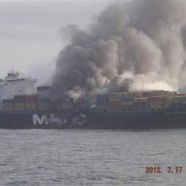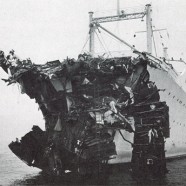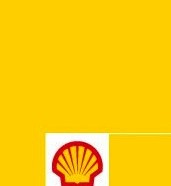The MSC Flaminia en route to Germany
MSC Flaminia
Press release no. 3
The MSC Flaminia could find refuge in Bremerhaven, Germany. Bremerhaven not only has docks avalaible for unloading MSC Flaminia, a process that will take several weeks, but also a dry dock for emergency repairs. The normal stopover time for a container ship of this size is a few hours. This remote destination requires the convoy to cross the English Channel and the North Sea. Germany is taking its responsibility as the MSC Flaminia flies the German flag. It is unfortunate that France, the United Kingdom and other countries closer to the current position of the MSC Flaminia were unable or unwilling to take charge of the ship.
Lead medal for the European Union
MSC Flaminia
Press release n° 2
The container ship MSC Flaminia that suffered an accident on 14th July 2012 is located 450 km to the west of Brest. She is carrying 2,876 containers and thousands of tonnes of propulsion fuel. The towing convoy is awaiting a possible destination other than the depths of the Atlantic. Will the records for wandering the high seas held by the Kharg V and the Castor be beaten?
The Kharg V, an Iranian oil tanker that fell into difficulties on 19th December 1989, had been refused entry to the waters of Morocco, Portugal, Spain, Senegal and Cape Verde. It was not until 6th February 1990 that transfer of the cargo on board Kharg V was completed, on the high seas off Sierra Leone, on to another Iranian tanker.
MSC Flaminia – Open letter to concerning parties
Urgent message addressed to the French and British governments and to the European Commission.
Mr Jean-Marc Ayrault
Mr David Cameron
Mr Siim Kallas
Mr Janez Potocnik
Dear Sirs,
Since July 14th 2012, following a fire and two explosions the container ship MSC Flaminia is in distress, in the North Atlantic. For the time being no place of refuge has been designated to receive the vessel which in addition to her containers is carrying several thousand tonnes of bunker oil. Robin des Bois is asking the coastal States of the Atlantic and the Channel to cooperate with the aim of facilitating the progression of the MSC Flaminia into Exclusive Economic Zones and territorial waters and to ease the entrance of the convoy into a port or place of refuge. Under these circumstances the practice of ping-pong with the MSC Flaminia from one side of the Channel to the other is only increasing the risk of a shipwreck and marine pollution. For more information on the subject Robin des Bois invites you to read “A Shelter for the MSC Flaminia” published yesterday.
A shelter for the MSC Flaminia
Since July 14th 2012 the container ship MSC Flaminia is in distress in the North Atlantic. Her cargo consists of 2,876 containers of which an unknown percentage contains dangerous materials. The lack of information to the public on the vessel’s loads is all the more surprising as she set sail from Charleston in the United States of America where transit conditions and container loading have the reputation of being the strictest in the world since (9/11) September 11, 2001. One of the containers onboard the MSC Flaminia caught fire which resulted in an explosion in the middle of the vessel. The first explosion was followed by a second four days later. The fire spread to at least another two holds as it raged for 9 days. Two sailors are dead (one is missing and the other died from severe burns) and another three are injured. The container ship was abandoned by the crew. The eventual loss of containers at sea is unknown.
Arctic Alarm
Fifty six years ago today, the Andrea Doria, the Italian star of the transatlantic cruise liner sunk off the coast of New York taking the lives of 47 passengers.
Let’s go
Shell of French Guiana
Release # 3 – Volume 2
Go Fast!
1 – On May 29, 2001, Christian Pierret, Secretary of State for Industry in Lionel Jospin’s government has granted Planet Oil Limited a permission for offshore drilling in French Maritime Guiana.
2 – On July 2nd, 2007, the license originally assigned to Planet Oil Limited was extended and given to Hardman Petroleum France by Jean-Louis Borloo, Minister of Ecology in François Fillon’s government.
3 –The operation was framed by two prefectoral decrees on January and March 2011 respectively. Then, from March to November, 2011: the primary exploratory drilling was accomplished. A peculiar situation : the prefect of French Guiana issued two security measures for evacuation of drilling platform when Kourou Space Center launched its first satellite because of the fear of a possible fallout on the drilling region.
Let’s go
Shell of French Guiana
Release # 3 – Volume 2
Go Fast!
1 – On May 29, 2001, Christian Pierret, Secretary of State for Industry in Lionel Jospin’s government has granted Planet Oil Limited a permission for offshore drilling in French Maritime Guiana.
2 – On July 2nd, 2007, the license originally assigned to Planet Oil Limited was extended and given to Hardman Petroleum France by Jean-Louis Borloo, Minister of Ecology in François Fillon’s government.
3 –The operation was framed by two prefectoral decrees on January and March 2011 respectively. Then, from March to November, 2011: the primary exploratory drilling was accomplished. A peculiar situation : the prefect of French Guiana issued two security measures for evacuation of drilling platform when Kourou Space Center launched its first satellite because of the fear of a possible fallout on the drilling region.
More transparency on the offshore and less light
Bonn
Plenary meeting – OSPAR Commission for the protection of the North-East Atlantic
So far from Guyana and yet so close, member states of the OSPAR Commission for the Protection of the North-East Atlantic in Bonn approached the offshore industry with Robin des Bois as their pilot fish. The area of competence of this international Commission extends from the arctic waters to Portugal.
Transparency
About 1,300 oil and gas offshore facilities are established in the OSPAR area, mainly in the North and Norwegian Seas. Pioneering in the field of ocean industrialization, this sector benefits from its geographical isolation. Robin des Bois proposed to the OSPAR member states to accurately map the oil rigs and label each of them with an identity voucher including key dates, water depth, drilling depth in the ocean floor, flags (certain drilling installations in the OSPAR zone are under Panama or Marshall Island flag), names of companies involved (owners, operators, managers, sub contractors…), accidents having occurred on site (fires, oil releases…) and main chronic emissions. This proposition was not greeted favorably by the UK delegation, neither was it by the International Oil and Gas Producers Association (OGP). Enforcing transparency is expensive whereas all the data is available on no free-of-charge databases, they say. These arguments were not convincing. France, Sweden, Spain, and Germany have supported Robin des Bois’s proposal. For once, the NGO will be invited to the next meeting of the offshore Experts Assessment Panel of OSPAR to itemize the project and its implementing means. Until now and for a long time, France had been represented on this panel by TOTAL. Has change finally occurred?
More transparency on the offshore and less light
Bonn
Plenary meeting – OSPAR Commission for the protection of the North-East Atlantic
So far from Guyana and yet so close, member states of the OSPAR Commission for the Protection of the North-East Atlantic in Bonn approached the offshore industry with Robin des Bois as their pilot fish. The area of competence of this international Commission extends from the arctic waters to Portugal.
Transparency
About 1,300 oil and gas offshore facilities are established in the OSPAR area, mainly in the North and Norwegian Seas. Pioneering in the field of ocean industrialization, this sector benefits from its geographical isolation. Robin des Bois proposed to the OSPAR member states to accurately map the oil rigs and label each of them with an identity voucher including key dates, water depth, drilling depth in the ocean floor, flags (certain drilling installations in the OSPAR zone are under Panama or Marshall Island flag), names of companies involved (owners, operators, managers, sub contractors…), accidents having occurred on site (fires, oil releases…) and main chronic emissions. This proposition was not greeted favorably by the UK delegation, neither was it by the International Oil and Gas Producers Association (OGP). Enforcing transparency is expensive whereas all the data is available on no free-of-charge databases, they say. These arguments were not convincing. France, Sweden, Spain, and Germany have supported Robin des Bois’s proposal. For once, the NGO will be invited to the next meeting of the offshore Experts Assessment Panel of OSPAR to itemize the project and its implementing means. Until now and for a long time, France had been represented on this panel by TOTAL. Has change finally occurred?
A Full tank of risks in Guyana, Normandy, and in the Arctic
Drilling in Guyana- Press release # 2
Shell is leading the dance in Guyana. The offshore is going to be subjected for over a year to the harmful effects and pollutions of 4 exploratory petroleum drillings and experimental pumping. The Guyanese coast and neighboring countries are not immune to drifts of accidental oil spills. The Scientific Committee of the International Whaling Commission has highlighted the diversity of large and small cetaceans off the coast of Guyana in 2011. Manatees, leatherback sea-turtles, and thousands of migrating birds that come from the Caribbean and Brazil to reproduce on the Grand Connétable Islands are threatened by the ultra-deep drilling thanks to the Shell’s supremacy, pressure from the Guyana elect, and the weaknesses of the French governments. The story began in May 2001, with the issuance from a prefect departmental Prefect order granting an exclusive permit for oil exploration also called the Guyana Maritime license. The energy transition made a detour by the prehistoric era and it is well known that the impact on the environment does not address, far from it, all the risks due to noise, light and atmospheric pollution.











